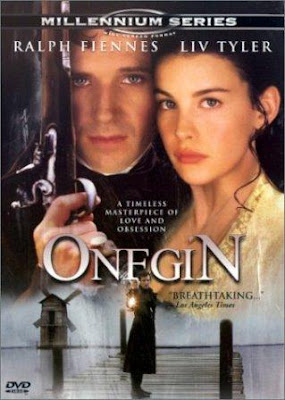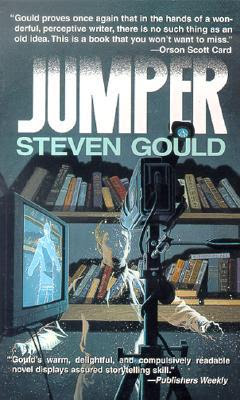Technology is everywhere today and it's only a matter of time before an even more user-friendly aspect of many of these devices becomes self-powered. What would make this possible is via touch-responsive nano-generator films that could powered touch screens. The same screens that are found in smart phones, laptops and tablet computers. When a screen flexes under a user's touch this is what will activate the electrical energy needed.
It's still about five years from the market and as stated in the article, "The field is young, and some major challenges remain. The power output of a single piezoelectric nanowire is quite small (around a picowatt), so harvesting significant power requires integrating many wires into a large array; materials scientists are still experimenting with how to engineer these screens to make larger devices."
It's great to know that one day we won't have to reply on power outlets or batteries to recharge our tech devices that will instead be continually charged as we use them.
More tech info on this article: Flex Electronics.
Wednesday, April 28, 2010
Thursday, April 22, 2010
Self-Editing
Editing is an important final step in the process of writing a manuscript before submitting it to an agent. Reading from a hardcopy instead of on the computer screen is a great way to catch any mistakes and this way a pen can be used to mark them and any notes. There are many rules to editing and listed are some of these to watch out for.
Keep a consistent POV (point of view) for one character in each scene. Sometimes I've heard to have one POV per chapter. Either one is good, but just have one character's view at a time so as not to confused the reader.
Look for repetition when editing and remove words or phrases that are seen often on the same page or even within the same chapter. Now and then I'll notice repittion of a certain phrase even if it occurs one hundred pages apart.
Keep the exclamation points, italics, and profanity to a minimum. Less is more in writing. No bold or underlining.
Since less is more is most effective try to keep the words and descriptions to a minimum for better impact and flow of reading.
Show instead of tell. Let the reader imagine the scene as it happens and show them through action or emotion.
When using the computer use spell check. Just make sure that you've used the words you mean to use, such as their, there or they're. ALthough written properly, the spell checker won't discern the meaning.
Use active words and voice whenever possible instead of the passive voice.
Read others' writing whether it's a book or someone's manuscript. Doing so will help you to see your writing in a different perspective and give you practice when self-editing.
Keep a consistent POV (point of view) for one character in each scene. Sometimes I've heard to have one POV per chapter. Either one is good, but just have one character's view at a time so as not to confused the reader.
Look for repetition when editing and remove words or phrases that are seen often on the same page or even within the same chapter. Now and then I'll notice repittion of a certain phrase even if it occurs one hundred pages apart.
Keep the exclamation points, italics, and profanity to a minimum. Less is more in writing. No bold or underlining.
Since less is more is most effective try to keep the words and descriptions to a minimum for better impact and flow of reading.
Show instead of tell. Let the reader imagine the scene as it happens and show them through action or emotion.
When using the computer use spell check. Just make sure that you've used the words you mean to use, such as their, there or they're. ALthough written properly, the spell checker won't discern the meaning.
Use active words and voice whenever possible instead of the passive voice.
Read others' writing whether it's a book or someone's manuscript. Doing so will help you to see your writing in a different perspective and give you practice when self-editing.
Sunday, April 18, 2010
Magic Windows: A New View; Video
With all the technology available today it's no surprise that simulated video screens would be an option in addition to the flat panels. This new product is an old idea from having been shown in entertainment media. As such, many have wondered what it'd be like to wake up to or just walk by a window to see a sight not otherwise seen outside their walls. This is what Winscape is all about. Bringing a different view by way of placing two frames or screens that appear to be windows on the wall and then hooking them to a computer. The software tracker puts the viewer in the right place at any distance or angle for a constant and realistic viewing experience.
The Winscape will be available in July for about $3,000. The article is at Magic Windows.
The Winscape will be available in July for about $3,000. The article is at Magic Windows.
Thursday, April 15, 2010
Onegin by Alexander Pushkin

Paperback
288 pages
Oxford University Press
ISBN: 9780192838995
Eugene Onegin (pronounced on-yay-gen) is Pushkin's classic lyrical novel and highly praised by Russians as one of their own favorite works of literature. Set in the early 19th century, the story centers around the title character and his relationships gone wrong with his neighbor, Vladimir Lensky, and Tatyana who is the sister of his neighbor's wife. Onegin and Vladimir confront each other over disagreement. Tatyana's love for Onegin is not returned and he tells her so, but when he finally realizes his love for her she is not in a position to return it.
Monday, April 12, 2010
Scene It, Heard It
There is a countless number of ways that a story can be written and for each the scenes are the pieces of the literary puzzle. Every scenes comprises the characters, events, plot, setting and action that drives the story to the next scene and so on. It's in this chain of events that every scenes gives the story purpose and a destination toward the final goal in the story. I think that every story written has some basis in actual life, even if it's in one scene or a combination of several elements that are added throughout the story. Everyday there are happenings and circumstances that we encounter that can always be found in a book.
The best and most creative stories can be inspired by the most mundane of events and situations, but the key factor in creating intriguing and exciting prose is in the content and craft of the scenes. Whether it's based on something that's viewed or heard during day to day events, these encounters can be a springboard for imaginative writing. Of course not just any everyday event is going to be right for a scene or that it should be included in a story, but can be considered if there's any glint of a interesting idea that can be used.
Sometimes what is heard and seen in an everyday circumstance can be salvaged for future writings if the current story won't allow for such an event. In writing it's said that less is more and to show and not tell what is happening in a story. In both of these cases, it is better to always try and write only what is neccessary and to let the reader experience what is both seen and heard for themselves, without the author interfering.
The best and most creative stories can be inspired by the most mundane of events and situations, but the key factor in creating intriguing and exciting prose is in the content and craft of the scenes. Whether it's based on something that's viewed or heard during day to day events, these encounters can be a springboard for imaginative writing. Of course not just any everyday event is going to be right for a scene or that it should be included in a story, but can be considered if there's any glint of a interesting idea that can be used.
Sometimes what is heard and seen in an everyday circumstance can be salvaged for future writings if the current story won't allow for such an event. In writing it's said that less is more and to show and not tell what is happening in a story. In both of these cases, it is better to always try and write only what is neccessary and to let the reader experience what is both seen and heard for themselves, without the author interfering.
Friday, April 9, 2010
Dove Evolution Video
It's said that a picture speaks a thousand words, so for this video, well...watch for yourself.
Monday, April 5, 2010
Jumper by Steven Gould

Paperback
352 pages
Tor Books
ISBN: 9780812522372
This is a great read that's well written by Steven Gould who tells the story of a teen who is given an incredible ability and has to figure out how to deal with it. David, the main character, one day discovers by accident that he can teleport anywhere in the world just by thinking of his destination. He isn't sure why he can teleport, but he has fun trying to figure it out while he's robbing a bank, getting a girlfriend, finding his estranged mother and tracking down a group of terrorists who the FBI and police are also pursuing. David discovers that with his ability, life becomes both easier and more difficult for him, depending on the circumstance. As his ability develops he has to figure out the right choices to make.
Thursday, April 1, 2010
A Network of Ideas
Ideas can strike at anytime and anywhere and whether the ideas are given creative life is, of course, determined by the one who thought of them. Ideas are best remembered by being written down and then returned to at a later time to be given a place in a manuscript or other form of creativity. Another great way to give ideas life is through networking with others with similar interests or even those with different views so that any thoughts on a certain topic can be considered. The same is true for a manuscript when placing the newly thought of plot elements or characterzations into a story. Some ideas will work and others might not.
It's always good to network with peers of your creative commons so that a better idea is gained by seeking various perspectives. And also, what might not seem to work for others might very well be compatible with your goals for the story and especially the characters that populate it. When the story begins to develop a life from the pages of ideas made of plot sketches and character development, it's then that a network of ideas grows into a fully functioning storyline. From here other ideas that other thought of are likely to have more focus and tied into the main storyline where the characters bring together realistic situations and creating stronger plot dynamics.
It's always good to network with peers of your creative commons so that a better idea is gained by seeking various perspectives. And also, what might not seem to work for others might very well be compatible with your goals for the story and especially the characters that populate it. When the story begins to develop a life from the pages of ideas made of plot sketches and character development, it's then that a network of ideas grows into a fully functioning storyline. From here other ideas that other thought of are likely to have more focus and tied into the main storyline where the characters bring together realistic situations and creating stronger plot dynamics.
Subscribe to:
Posts (Atom)


